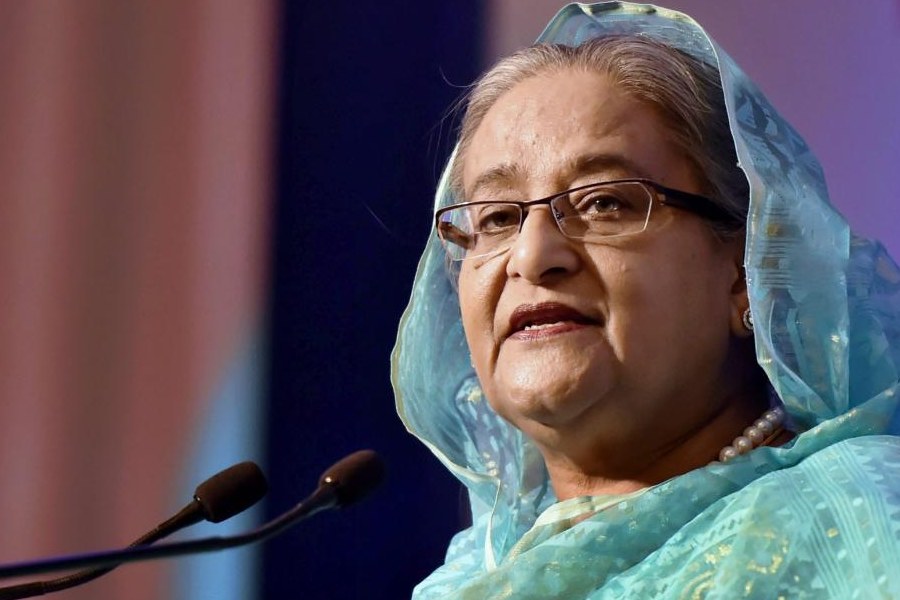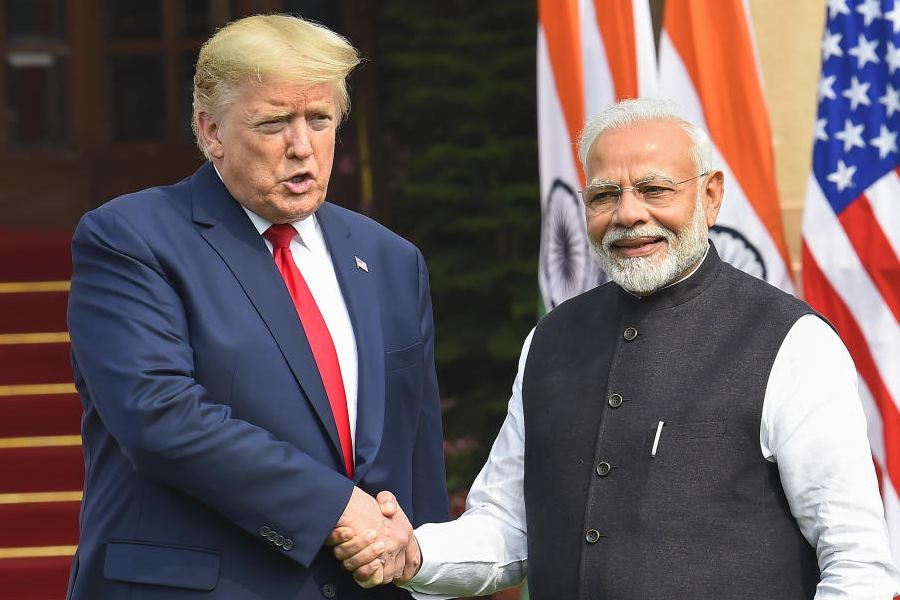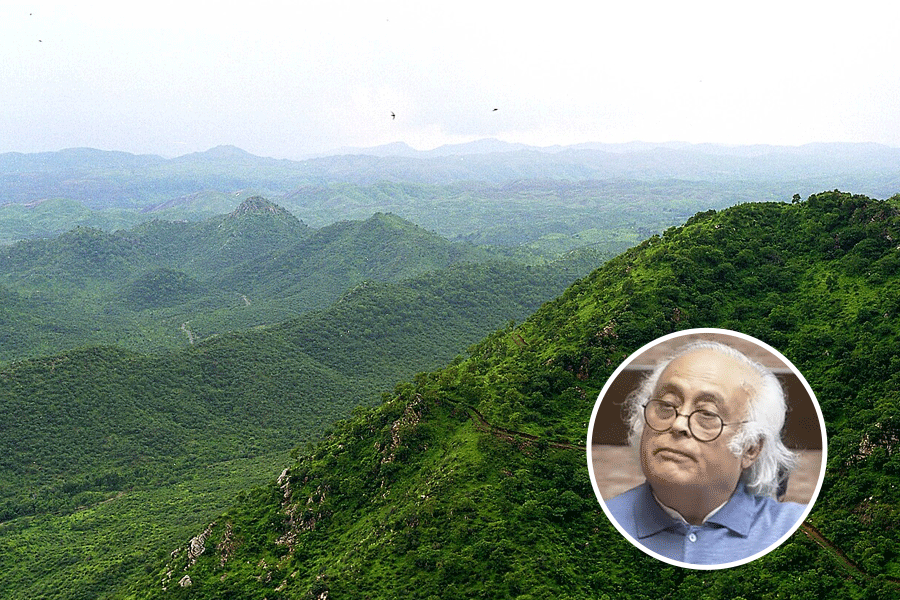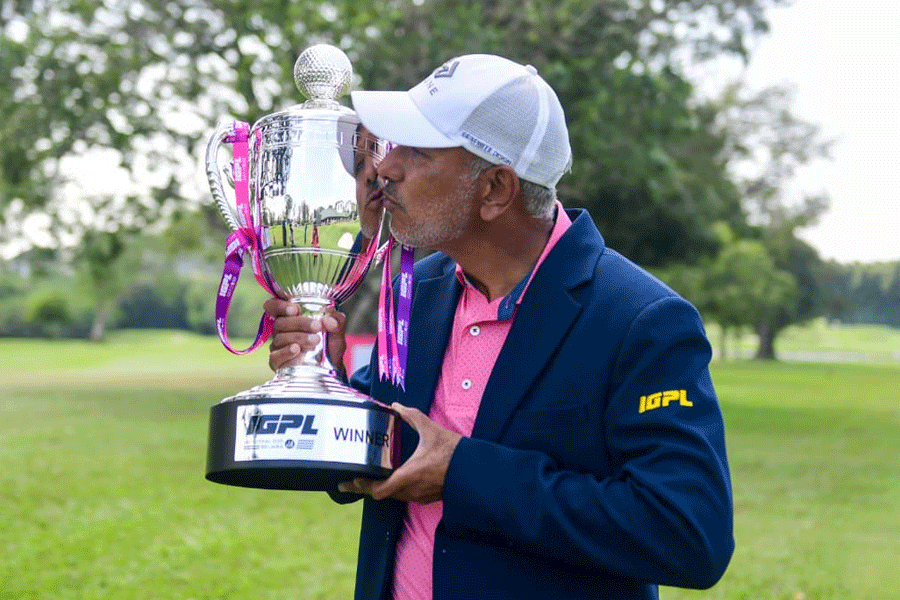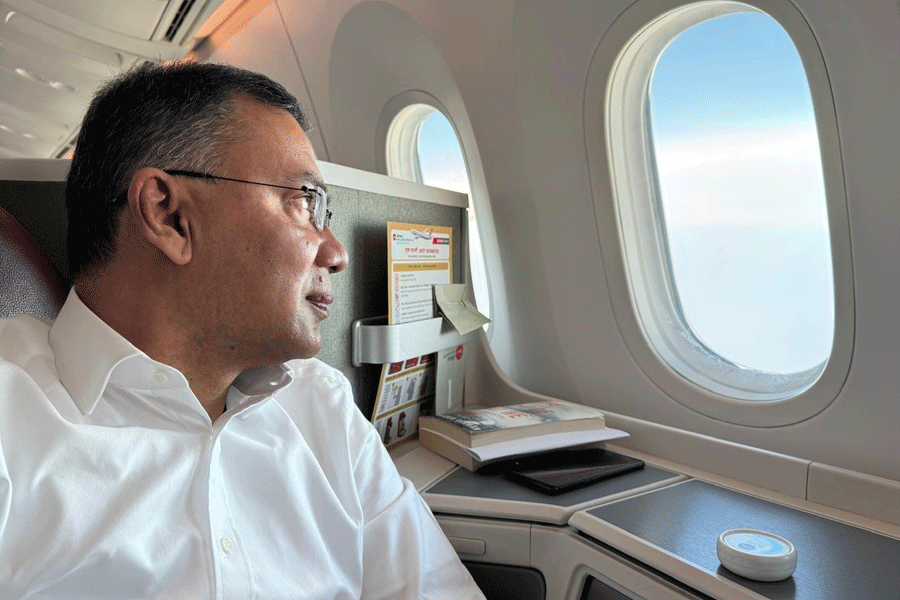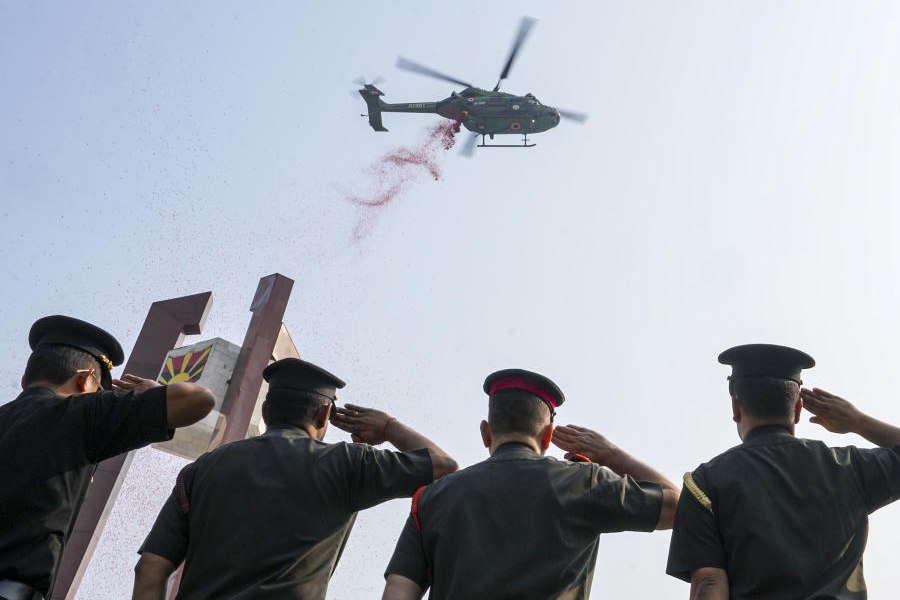 |
| A jirga head Mian Gulzar Ahmad (right) listens to a complaint lodged by Mustafa Kasana (left). Picture by Abdul Qayoom |
Baba Nagri (Kangan), Oct. 29: Mustafa Kasana of Poshkar village is a broken man; his wife has ditched him for another.
Worse, his in-laws have lodged a police complaint against him.
Yet hope springs from a single source: the jirga — the centuries-old tribal justice system with its roots in Afghanistan and the tribal swathes of Pakistan.
The father of three expects nothing short of justice from the council of elders. “I will never go to the police. Whatever the jirga decides is acceptable to me,’’ he says.
He and father Zaman Kasana must now travel to this mountain village in Kangan tehsil of Srinagar district to appeal before the jirga. The councils hold great sway over Kashmir’s Gujjar and Bakerwal tribes and a minuscule Pashtun population, and decide ticklish issues among them.
The system is an import from Afghanistan, where the loya jirga (grand council of tribal chiefs) dispenses justice and issues edicts on national issues that transcend a single tribe’s jirga.
For instance, a loya jirga had been convened in June 2002 to endorse Hamid Karzai as President till the general elections and draft a new constitution for the country.
“We have recorded Mustafa’s complaint and will send a notice summoning his in-laws,” says Mian Gulzar Ahmad, the jirga chief. “After listening to both sides, we will pronounce a decision according to the Sharia.”
The councils not only rule on marital and land disputes but also punish crime. “If someone has stolen a sheep, he has to forfeit two,’’ says Ahmad. “At times, the thief is punished in public.’’
Although the Sharia is at the core of the jirgas’ rulings, most decisions appear to be governed by local customs.
“The laws of the country apply here. If we pronounce harsh punishments like amputation of hand (the Sharia provides for it in case of theft), the police will come and arrest us,’’ the jirga chief explains. Jirgas in Pakistan, however, are powerful enough to hand the death penalty.
Even in Kashmir, if any party fails to respect a jirga decision, it is ostracised. When some people from Hari Ganwan village refused to end their encroachment of a road leading to other villages, the jirga called for a social boycott.
“It’s irreligious to defy the jirga. We boycotted these people, forcing them to relent,’’ recalls Ghulam Ali Kasana of the village.
The bigger disputes land in the jirga of senior Gujjar religious figures, such as Mian Bashir Ahmad, the tribe’s tallest leader. He is credited with resolving thousands of disputes, including the famous 15,000-kanal (1,875-acre) pasture land row in Poonch and Rajouri.
“It had raged for around 100 years,’’ says Mian Bashir. “The former rulers of Jammu and Poonch, Maharana Pratab Singh and Baldev Singh, had tried to settle it and failed. But in 1957, it took me just three hours to resolve the stalemate.’’
When some people later began opposing the jirga decision, “I ordered them expelled. They had to go”.
An Afghan loya jirga, called by the Taliban just after the 9/11 attacks, had similarly asked Osama bin Laden to leave the country to pre-empt a US invasion. But as the September 20-22 assembly had stopped short of an expulsion order, the al Qaida chief stayed on, with Mullah Omar saying he couldn’t dishonour the Pashtun tradition of hospitality.
Kangan legislator Mian Altaf Ahmad, who himself heads jirgas, says these courts are a great help to the locals.
“Most here are poor and illiterate. If they go to police or the courts, it will exhaust their energy and resources. They get speedy justice here.’’
But at times, the elders can be influenced with money or other favours.
“I had to send my son as a bonded labourer with a jirga head for three months after he favoured me in a decision,’’ says a resident of Hari Ganwan. “Sometimes they seek money, which we cannot afford but have to pay.’’
“I have received a complaint against the head of a Kupwara village and have asked him to appear here,” admits Mian Altaf. “If a case is established, we will take action.”


